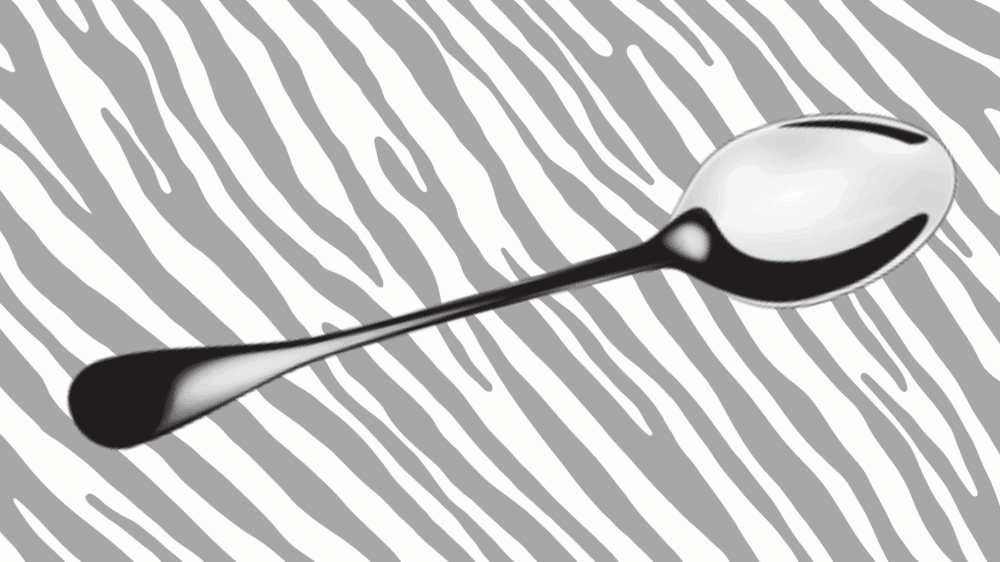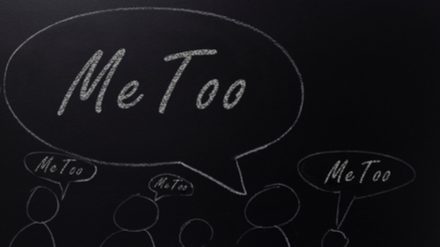Please Don’t Define Me as a “Hippie,” “Spoonie,” or “Zebra”
Early last year, I went to an online networking event for writers. The organiser, who I had only spoken to online, started by introducing everyone. There were journalists, fiction writers, scriptwriters, and then she introduced me as a “Zebra.”
I was actually quite confused as I’d never heard the term before. Looking it up afterwards, I learned that Zebra is used by the hypermobility community, but as it wasn’t a term I knew, I’ve never identified with it.
The event organiser told attendees how flexible my joints are, after which came the inevitable call out from someone to show them. They wanted me to pop something out so they could see it for themselves. That person was told off by someone who started telling us about their disabled friend, who was then told off by someone else stage whispering “They prefer Spoonie.”
The event proceeded with people reading their own work. When I read mine most of the comments stemmed from surprise that my poem wasn’t about living with disability, because from the point that the organiser introduced me as a Zebra, I wasn’t viewed as a writer anymore. I wasn’t anything other than my disability. I was the Zebra who was unreasonably reluctant to intentionally dislocate my own shoulder in a Zoom room full of strangers.
Labels for disabilities can be positive things. For instance, the Hip Dysplasia community on social media proudly refer to each other as “fellow Hippies” as a symbol of support and unity, which helps remind us that we’re not alone.
Luke Montague, an actor who lives with Tourette Syndrome, says that people in the Tourette’s community “refer to [themselves] as ticcers.” Luke is open about his condition, “because you can’t really hide it,” he says, but he doesn’t focus on it when introducing himself to people. He tells me he is “an actor with Tourette’s… not a Tourette’s guy whose an actor.” Luke says if someone else calls him a ticcer he’s “perfectly OK with that” but does get annoyed if people “identify [him] as a disabled actor [as] that’s for [him] to do”.
Liana Jane Bourne, a stage manager who lives with myalgic encephalomyelitis (ME), tells me that she doesn’t use Spoonie herself but she “know[s] a lot of people who’ve got chronic illnesses or disabilities do use it… because they find it easier to explain to people who don’t have conditions what it’s like.”
Of course, this is what the Spoon Theory (from which the term “Spoonie” followed) was always intended to do, but it’s now often over-simplified, leading non-disabled people to tell me that I only need a good night’s sleep and then I’ll have all of “my spoons” back. In reality, I have good days and bad days. On some days, I wake up and have no spoons; on other days, I wake up and have far more than usual.
When talking about her ME, Liana prefers to say it’s “like you’re a phone battery but the charger is broken, so some days it connects fine and you do recharge when you sleep but then other days you wake up and your phone’s dead.”
This shows how unique explanations for disabilities can enhance understanding. The Spoon Theory is a great way to explain to someone what it’s like to live with a disability, but if it’s seen as a person’s whole story, you can miss important factors.
At that online networking event, I listened to someone who was a complete stranger tell a room full of people that I wanted to be called a Spoonie. I did not disclose my disability. I did not identify myself as a “Zebra” or a “Spoonie.” This was all done for me by people I didn’t even know.
Some disabilities can be perceived as not serious, or sometimes even completely imaginary. People can be dismissive of symptoms or even treat them like party tricks. Words are powerful things and can reinforce these misunderstandings. Luke says that people tell him they “bet [he] just swear[s] to get away with it” despite the fact that only 10-20% of people living with Tourette’s have this symptom. Liana avoids using the term Chronic Fatigue Syndrome (CFS) because the word fatigue means many people tell her “maybe [she] should go to bed earlier.”
Some people are now using words like Spoonie or Hippie just to highlight to other people that they aware, that they understand what it’s like to live with a disability: Look this is my Spoonie friend. I have a friend who’s a Hippie. This is my friend with ME. I’m doing my bit. Luke says that people are “scared of disability… and they don’t know how to approach it” but it’s important to remember that disabled people are individuals with their own stories and opinions. They are not the face of a community on social media you can reduce to a label to demonstrate your own unbiased behaviour. The Spoon Theory is a brilliant and insightful piece which demonstrates what life is like for some people living with invisible illnesses, but it is not a licence to call any disabled person you know a Spoonie without their permission.
Many social justice movements have highlighted the issue of performative allyship, where people engage in actions in order to improve how other people view them rather than to actively enhance the lives of the social groups they are claiming to help. I don’t want to be somebody’s token disabled friend who is introduced at parties as the Zebra who can pop her own hip out. That’s not top of the list of things about me that I tell people. People with disabilities spend a lot of time fighting for their symptoms to be seen, believed and understood, which is where the unifying power of labels used within communities comes from. But if we use these labels at the expense of seeing disabled people as whole human beings, we’re only taking away something these labels were intended to amplify – our voices.
About Rooted In Rights
Rooted in Rights exists to amplify the perspectives of the disability community. Blog posts and storyteller videos that we publish and content we re-share on social media do not necessarily reflect the opinions or values of Rooted in Rights nor indicate an endorsement of a program or service by Rooted in Rights. We respect and aim to reflect the diversity of opinions and experiences of the disability community. Rooted in Rights seeks to highlight discussions, not direct them. Learn more about Rooted In Rights



